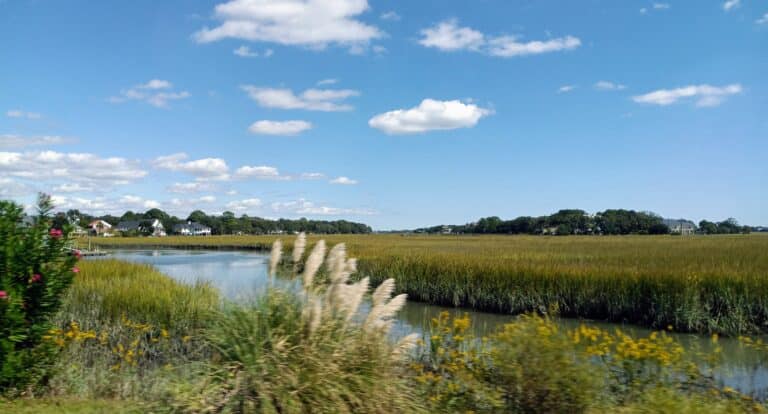Stunning coastal views and long-term returns? Yes, please. With beachfront property, landowners can enjoy the best of both worlds—recreation and investment, beautiful scenery and passive income.
If you’ve been dreaming of a beachfront parcel to call your own, you’re in the right place. Check out our beginner’s guide on how to buy beachfront property, complete with insider tips from our real estate experts.
Is Beachfront Property a Good Investment?
Beachfront property is a smart investment, in addition to an everyday luxury. With there are so many places to buy beachfront properties, finding the right location can elevate your lifestyle while maximizing value and long-term potential.
It’s in higher demand than inland properties, meaning an oceanfront property has a greater potential for appreciation in the event of a future sale. Plus, as a diverse type of acreage, it can be used residentially for a homestead.
As you prepare to sign on the dotted line, ensure the best experience possible with our top ten tips for how to buy beachfront property.
1. Choose the Right Location for Your Beachfront Land
The best location depends on your goals for your coastal property. Will it be a tourist rental, a full-time homestead, or something else? For example, buying land in North Carolina offers a mix of scenic coastline, growing tourism, and year-round livability—making it a versatile choice for many buyers.
Once you have your answer, consider the following:
- Property accessibility (roads, parking)
- Proximity to essential services (stores, infrastructure)
- Tourism trends
- Local climate
These factors and more will help you select a location for your waterfront property based on your needs and positively impact your coastal property value going forward.
2. Understand Zoning Laws and Coastal Development Rules
Zoning laws differ by state and area and will determine how your beach property can be used (residential, commercial, mixed-use, etc). Many beachfront zones also have setback requirements and environmental regulations to consider before building a vacation home or rental property.
All local policies are different, so it’s crucial to research zoning and land use regulations before making a purchase.
3. Check for Erosion, Flooding, and Other Environmental Risks
Coastal land comes with a range of potential challenges like sand/soil erosion, rising sea levels, and storm damage. Before purchasing a beach property, assess these risks professionally, such as with:
- Flood zone maps
- Coastal construction studies
- Expert evaluations (surveyors, environmentalists)
This step marks one of the biggest differences between purchasing beachfront and inland property.
4. Research Property Boundaries, Land Surveys, and Titles
Before finalizing a sale, it’s important to check all the legal boxes. This step can save you major headaches down the line.
An official land survey reveals exact property lines and easements, helping avoid future neighborly disputes along your oceanfront property. While you’re at it, conduct a title search to ensure there aren’t any ownership issues that could complicate your purchase.
5. Budget for the Purchase and Ongoing Maintenance Costs
A beachfront purchase is more than the cost of land—it can include a variety of other long-term expenses, such as:
- Property taxes
- Insurance
- Maintenance costs
- Erosion control
- Homeowners Association (HOA) dues
Future landowners should budget beyond just the purchase price to stay within financial means.
6. Explore Financing and Loan Options for Coastal Land
If you can’t front the cash for a beachfront property, don’t worry. There are many financing options available for landowners, including:
- Traditional mortgages
- Land loans
- Owner (seller) financing
Some lenders may require higher down payments for coastal properties, so we recommend getting several quotes and connecting with a local agent to secure the best rates.
7. Work with a Local Real Estate Agent or Land Specialist
Real estate professionals not only understand the unique challenges of buying coastal land—they also know local market trends and have on-the-ground experience in the community. Land Pros can help buyers navigate zoning laws, research property history, negotiate with sellers, ensure fair market pricing, and much more.
Put simply, working with a local land real estate agent can help ensure a smooth buying process from start to finish.
8. Ensure Utilities and Infrastructure Are Available
Before purchasing, confirm that the property has access to everyday essentials like water, electricity, sewage, and roadways. If utility infrastructure is not in place, it can be costly to install later on, especially in remote areas.
9. Get the Necessary Permits for Construction or Use
If you’re planning to develop or build on beachfront land, you’ll need to secure the correct permit. Depending on the location and property goals of your future beachfront home, you may need:
- Construction permits
- Environmental permits
- Coastal protection permits
We recommend starting this process sooner rather than later to avoid delays.
10. Protect Your Investment with Insurance and Legal Safeguards
Last but not least, ensure your new property is safe from potential risks. Consider the following legal protections:
- Flood and hurricane insurance
- Title insurance
- Property deed verification
In addition to traditional homeowner’s insurance, coastal land requires advanced safeguards to help ensure a risk-free investment.
Find Your Perfect Beachfront Property with Land.com
Now that you know how to buy a beachfront property, browse available beachfront land for sale on Land.com. As the nation’s leading online real estate marketplace, we simplify the search process by connecting buyers with trusted sellers and dedicated Land Pros who streamline every step.
At Land.com, you’re equipped with the tools you need to make a confident investment in coastal real estate.
Sources:
Investopedia. Title Search: What It Is, How It’s Done, and Title Insurance. https://www.investopedia.com/terms/t/titlesearch.asp.
Investopedia. Land Loans: Everything You Need To Know. https://www.investopedia.com/articles/credit-loans-mortgages/090716/land-loans-3-things-know-you-buy-land.asp.
NOAA. Waterfront Setbacks. https://coastalsmartgrowth.noaa.gov/gettingstarted/waterfront_setbacks.html.



